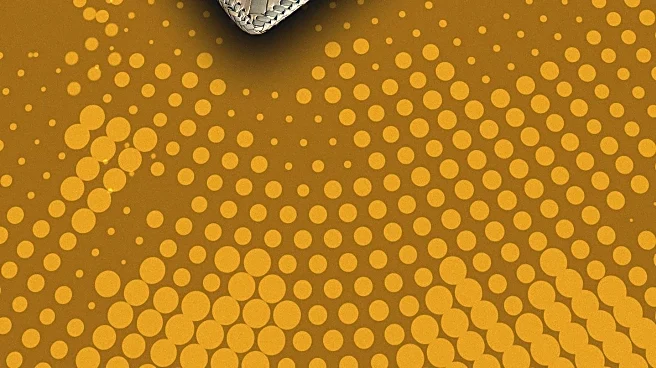What's Happening?
A study conducted in Khartoum North has found that 100% of eggshell samples from retail outlets were contaminated with at least one bacterial species. Staphylococcus spp. was the most prevalent, followed
by Bacillus spp. and Corynebacterium spp. Salmonella spp. was detected in 15.5% of samples. The study highlights the widespread nature of microbial contamination in table eggs sold in Sudan, with implications for food safety. The findings suggest contamination from environments associated with human and animal handling, emphasizing the need for improved sanitation practices.
Why It's Important?
The study underscores significant food safety concerns related to bacterial contamination in eggs, which can pose health risks to consumers. The presence of pathogens like Salmonella and Escherichia coli indicates potential faecal contamination, raising public health concerns. The ability of Staphylococcus spp. to produce heat-stable enterotoxins that withstand cooking temperatures further amplifies the risk. These findings highlight the importance of implementing stringent food safety measures and monitoring to protect consumer health.
What's Next?
Improving sanitation practices and food safety surveillance in retail markets is crucial to reducing bacterial contamination in eggs. Incorporating physicochemical measures, such as albumen pH, into food safety programs could enhance monitoring efforts. Addressing contamination pathways and improving housing system differences that affect bacterial loads are essential steps in ensuring safer food products.
Beyond the Headlines
The study reveals the potential for antimicrobial resistance among egg-associated pathogens, which could complicate treatment options and increase health risks. Understanding the sources and pathways of contamination is vital for developing effective interventions and policies to safeguard public health.










